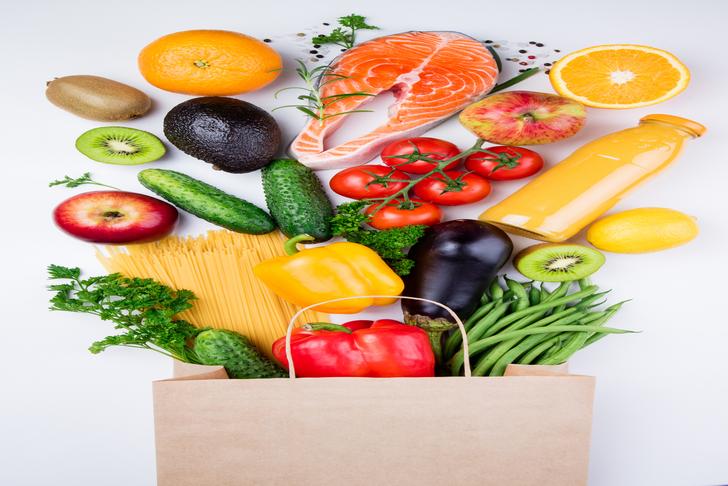Navigating Nutritional Myths: The Comprehensive Guide to Healthy Eating Truths
Many myths have been passed down through generations and continue to perplex us today, thanks to the internet and social media. With so much information available at our fingertips, it’s essential to separate fact from fiction, especially when it comes to our health. Let’s dive in!
Myth: Eating fat makes you fat
This is one of the most common misconceptions about healthy eating. While it’s true that fats contain more calories per gram than proteins or carbohydrates, not all fats are created equal. Healthy fats, such as those found in avocados, nuts, and olive oil, are essential for our bodies to function properly. They help support brain function, hormone production, and nutrient absorption [[1]]. So, instead of cutting out fat completely, focus on consuming healthier fat options and practice moderation.
Moreover, several studies have shown that diets rich in healthy fats, such as the Mediterranean diet, can promote weight loss, reduce heart disease risk, and improve overall health. So, remember to distinguish between healthy and unhealthy fats, and consume them in balanced proportions.
Advertisement
Myth: You should avoid carbohydrates
Carbohydrates have been demonized in recent years, with many people believing that they lead to weight gain. However, it’s important to differentiate between simple and complex carbohydrates. Simple carbs, found in foods like white bread, pasta, and sugary snacks, can indeed lead to weight gain when consumed in excess. On the other hand, complex carbs found in whole grains, fruits, and vegetables provide energy, fiber, and essential nutrients.
In reality, carbohydrates are a crucial source of energy for the body, as they are broken down into glucose, the primary fuel for bodily functions. So, don’t avoid carbs completely, just choose healthier options like whole grains and fresh produce. When making meal choices, consider incorporating a healthy balance of carbohydrates, proteins, and fats for optimal nutrition and energy levels.
Advertisement
Myth: Eating at night leads to weight gain
Many people believe that consuming calories late at night will cause the body to store them as fat, leading to weight gain. However, weight gain is primarily caused by consuming more calories than you burn, regardless of when the food is consumed [[2]]. So, if you’re snacking at night, pay attention to the types and amounts of food you’re consuming and stay within your daily calorie allowance to avoid weight gain.
Several studies have shown no significant difference in weight gain due to the timing of calorie consumption, but instead, highlight the importance of the overall quality and quantity of your daily caloric intake. To maintain a healthy weight, focus on portion control and consume a balanced, nutrient-dense diet throughout the day rather than micromanaging when you consume your calories.
Furthermore, keep in mind that late-night snacks should be chosen wisely so you don’t disrupt your sleep or digestion. Opt for snacks that are easily digestible and devoid of stimulants such as caffeine, while providing essential nutrients that promote rest and relaxation, like magnesium and tryptophan.
Advertisement
Myth: Skipping meals helps you lose weight
While skipping a meal may lower your daily calorie intake, it’s not a sustainable or healthy weight loss strategy. In fact, skipping meals can lead to low energy levels, poor concentration, and may cause you to overeat later in the day. Instead of skipping meals, focus on consuming balanced, portioned meals throughout the day and stay active to create a calorie deficit that promotes weight loss.
Meal planning and prepping ahead of time can be an effective tool for managing weight loss or maintenance while minimizing the risk of overeating or binging on unhealthy foods. Mindfully consuming balanced meals fuels your body, satisfies your hunger, aids in regulating blood sugar levels, and can lead to sustainable weight management.
Advertisement
Myth: Gluten-free diets are healthier for everyone
Gluten-free diets have become increasingly popular in recent years, with many people believing that they’re a healthier option. However, this isn’t the case for everyone. Gluten-free diets are essential for individuals with celiac disease or a gluten intolerance, but for the general population, there’s no evidence to suggest that avoiding gluten offers any significant health benefits [[1]]. In fact, many gluten-free products can be high in sugar, fat, and calories, making them less healthy than their gluten-containing counterparts.
Instead of going gluten-free without medical reasons, focus on eating a well-rounded diet filled with whole foods like fruits, vegetables, lean proteins, whole grains, and healthy fats. Making these choices can benefit your overall health, as many whole food sources coincide with balanced nutrition and essential vitamins and minerals.
Advertisement
Myth: Fresh fruits and vegetables are always better than frozen or canned
While fresh produce often tastes better and has a more appealing texture, frozen or canned fruits and vegetables can still be a healthy and convenient option. Frozen produce is often picked at peak ripeness and flash-frozen to maintain nutrients, while canned produce may be packed in water or its own juices to preserve the nutrient content [[2]]. Just be sure to choose canned products with no added sugars or high-sodium preservatives.
In addition to being nutritious, frozen and canned fruits and vegetables can make it easier to incorporate more diverse, seasonal produce items into your diet year-round and cut down on food waste as they often come with a longer shelf life.
Now that we’ve debunked some popular nutritional myths, you can make more informed choices about your diet and embrace a healthier lifestyle. Remember, it’s all about moderation, variety, and balance. Cheers to healthy eating!

Advertisement





